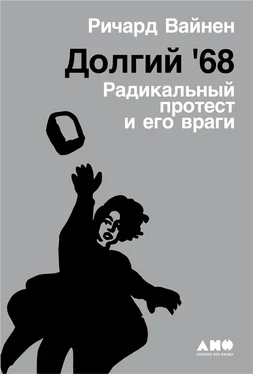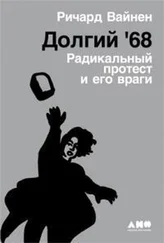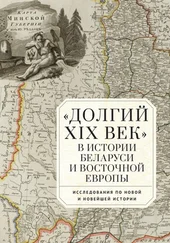После 1968 года порой утверждалось, что беби-бумеры росли в условиях, способствовавших вседозволенности и бунтарству. Социолог Дэвид Рисмен, далекий от консерватизма, называл тем не менее радикалов 1960-х годов «избалованными детьми», добавляя, что «из-за этого они ожидали, что их требования всегда будут выполняться незамедлительно» [119] The Times, 29 May 1968.
. Спиро Агню, в 1969 году ставший вице-президентом США, возлагал ответственность за это на доктора Бенджамина Спока, уроженца 1903 года, чья книга «Ребенок и уход за ним», впервые изданная в 1946-м, якобы способствовала «разболтанности» в воспитании детей. Но та интерпретация Спока, на которую нападали консерваторы, была, скорее, следствием 1968 года, а не его причиной. Да, Спок участвовал в антивоенном движении, а в 1972 году баллотировался на пост президента в качестве радикального кандидата, но в его послевоенных взглядах на воспитание детей радикализм отсутствует. Идеи популярного доктора в основном держались на «здравом смысле», под которым понимались методы и способы воспитания, использовавшиеся матерями еще до Второй мировой войны. Некий английский профессор объяснял студенческие протесты конца 1960-х «заповедью "не смей пороть", сформулированной доктором Споком» [120] L. Neville Brown, 'Student Protest in England', The American Journal of Comparative Law, 17, 3 (1969), pp. 395–402.
Конец ознакомительного фрагмента.
Текст предоставлен ООО «ЛитРес».
Прочитайте эту книгу целиком, на ЛитРес.
Безопасно оплатить книгу можно банковской картой Visa, MasterCard, Maestro, со счета мобильного телефона, с платежного терминала, в салоне МТС или Связной, через PayPal, WebMoney, Яндекс.Деньги, QIWI Кошелек, бонусными картами или другим удобным Вам способом.
Оливье Ассайас в интервью для «Eye for Film» (март/апрель 2013).
Daniel Rondeau, L'Enthousiasme (1988).
Jonah Raskin, Out of the Whale: Growing up in the American Left (New York, 1974); Thai Jones, A Radical Line: From the Labor Movement to the Weather Underground, One Family's Century of Conscience (New York, 2004).
Daniel Bertaux, Danièle Linhart, Béatrix Le Wita, 'Mai 1968 et la Formation de Générations Politiques en France', Le Mouvement Social, 143 (1988), pp. 75–89.
Marica Tolomelli, '1968: Formen der Interaktion zwischen Studentenund Arbeiterbewegung in Italien und der Bundesrepublik', Geschichte und Gesellschaft, Sonderheft 17 (1998), S. 82–100.
Luisa Passerini, Autobiography of a Generation: Italy, 1968 (Hanover, NH, 1996), p. 60.
Stafford, Staffordshire Public Record Office (Staff), D4490/48, letter from J.C.H., 20 November 1970.
Ibid., Powell to Patricia S., 12 April 1972.
Stuart Hall, 'The Great Moving Right Show', Marxism Today, January 1979.
Sean D. Stryker, 'Knowledge and Power in the Students for a Democratic Society, 1960–1970,' Berkeley Journal of Sociology, 38 (1993), pp. 89–138.
Charles Morazé, Un Historien Engagé: Mémoires (2007), p. 305.
См. выступление Мишеля Рокара на «круглом столе» в 2001 году: 'Table Ronde: Pierre Mendès France et Mai 68', Matériaux pour l'Histoire de Notre Temps, 63, 1 (2001), pp. 161–79.
Régis Debray, Modeste Contribution aux Discours et Cérémonies Officielles du Dixième Anniversaire (1978), p. 49.
Publisher's introduction, Michael (Bommi) Baumann, Love or Terror: A Personal Account of a West German Urban Guerrilla (1979), p. 12.
Jeremy Varon, Bringing the War Home: The Weather Underground, the Red Army Faction and Revolutionary Violence in the Sixties and Seventies (Berkeley, CA, 2004), p. 46.
Richard Crossman, The Diaries of a Cabinet Minister, vol. II: Lord President of the Council and Leader of the House of Commons, 1966–68 (1976), p. 700. Запись от 10 марта 1968 года.
Sheila Rowbotham, Promise of a Dream: Remembering the Sixties (2001), p. 162.
Lisa Power, No Bath but Plenty of Bubbles: An Oral History of the Gay Liberation Front, 1970–73 (1995).
Martin Klimke, The Other Alliance: Student Protest in West Germany and the United States in the Global Sixties (Princeton, 2010), p. 14.
Tom Hayden, Reunion: A Memoir (1988), p. 93.
См.: https://www.cia.gov/library/readingroom/document/0002987248.
Pierre Grappin, L'Île aux Peupliers. De la Résistance à Mai 68: Souvenirs du Doyen de Nanterre (Nancy, 1993), p. 281.
Luisa Passerini, Autobiography of a Generation: Italy, 1968 (Hanover NH, 1996), p. 109.
Richard Fairfield, Communes USA (New York, 1972), p. 3.
The Times, 31 October 1968.
Daniel Cohn-Bendit, Nous l'Avons Tant Aimée la Révolution (1986).
John Gerassi, Talking with Sartre: Conversations and Debates (New Haven, CT, 2009), p. 236. Сартр сказал о Кон-Бендите: «Он был не таким уж и блистательным – мне этот человек не очень нравился».
Anna Cento Bull, Philip Cooke, Ending Terrorism in Italy (2013), p. 75.
Ron Jacobs, The Way the Wind Blew: A History of the Weather Underground (1997), p. 94.
Alain Schnapp, Pierre Vidal-Naquet, Journal de la Commune Étudiante: Textes et Documents, Novembre 1967–Juin 1968 (1969); Jean-Claude, Michelle Perrot, Madeleine Rebérioux, Jean Maitron, 'La Sorbonne par Elle-Même: Mai – Juin 1968', Le Mouvement Social, 64 (1968).
Читать дальше






![Пол Андерсон - Долгая дорога домой [Долгий путь домой, У них нет мира]](/books/340873/pol-anderson-dolgaya-doroga-domoj-dolgij-put-domo-thumb.webp)

![Ричард Вайнен - Долгий '68 - Радикальный протест и его враги [калибрятина]](/books/391385/richard-vajnen-dolgij-68-radikalnyj-protest-i-eg-thumb.webp)
![Аделия Розенблюм - Инспектор Ян. Долгий путь [litres самиздат]](/books/436857/adeliya-rozenblyum-inspektor-yan-dolgij-put-litres-thumb.webp)

